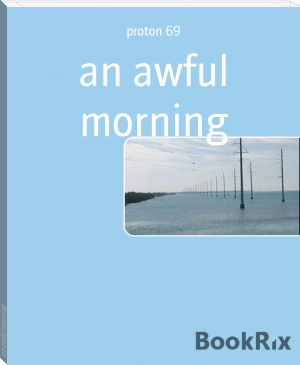Literary Lapses by Stephen Leacock (ebook reader online TXT) 📗

- Author: Stephen Leacock
Book online «Literary Lapses by Stephen Leacock (ebook reader online TXT) 📗». Author Stephen Leacock
With the disturbance thus set up in the nervous system were coupled, in many instances, mental aberrations, particularly in regard to pecuniary matters. "Give me not silk, nor rich attire," pleaded one poet of the period to the British public, "nor gold nor jewels rare." Here was an evident hallucination that the writer was to become the recipient of an enormous secret subscription. Indeed, the earnest desire NOT to be given gold was a recurrent characteristic of the poetic temperament. The repugnance to accept even a handful of gold was generally accompanied by a desire for a draught of pure water or a night's rest.
It is pleasing to turn from this excessive sentimentality of thought and speech to the practical and concise diction of our time. We have learned to express ourselves with equal force, but greater simplicity. To illustrate this I have gathered from the poets of the earlier generation and from the prose writers of to-day parallel passages that may be fairly set in contrast. Here, for example, is a passage from the poet Grey, still familiar to scholars:
"Can storied urn or animated bust Back to its mansion call the fleeting breath? Can honour's voice invoke the silent dust Or flattery soothe the dull cold ear of death?"Precisely similar in thought, though different in form, is the more modern presentation found in Huxley's Physiology:
"Whether after the moment of death the ventricles of the heart can be again set in movement by the artificial stimulus of oxygen, is a question to which we must impose a decided negative."
How much simpler, and yet how far superior to Grey's elaborate phraseology! Huxley has here seized the central point of the poet's thought, and expressed it with the dignity and precision of exact science.
I cannot refrain, even at the risk of needless iteration, from quoting a further example. It is taken from the poet Burns. The original dialect being written in inverted hiccoughs, is rather difficult to reproduce. It describes the scene attendant upon the return of a cottage labourer to his home on Saturday night:
"The cheerfu' supper done, wi' serious face They round the ingle form in a circle wide; The sire turns o'er, wi' patriarchal grace, The big ha' Bible, ance his father's pride: His bonnet rev'rently is laid aside, His lyart haffets wearing thin an' bare: Those strains that once did sweet in Zion glide, He wales a portion wi' judeecious care."Now I find almost the same scene described in more apt phraseology in the police news of the Dumfries Chronicle (October 3, 1909), thus: "It appears that the prisoner had returned to his domicile at the usual hour, and, after partaking of a hearty meal, had seated himself on his oaken settle, for the ostensible purpose of reading the Bible. It was while so occupied that his arrest was effected." With the trifling exception that Burns omits all mention of the arrest, for which, however, the whole tenor of the poem gives ample warrant, the two accounts are almost identical.
In all that I have thus said I do not wish to be misunderstood. Believing, as I firmly do, that the poet is destined to become extinct, I am not one of those who would accelerate his extinction. The time has not yet come for remedial legislation, or the application of the criminal law. Even in obstinate cases where pronounced delusions in reference to plants, animals, and natural phenomena are seen to exist, it is better that we should do nothing that might occasion a mistaken remorse. The inevitable natural evolution which is thus shaping the mould of human thought may safely be left to its own course.
Self-made Men
They were both what we commonly call successful business men—men with well-fed faces, heavy signet rings on fingers like sausages, and broad, comfortable waistcoats, a yard and a half round the equator. They were seated opposite each other at a table of a first-class restaurant, and had fallen into conversation while waiting to give their order to the waiter. Their talk had drifted back to their early days and how each had made his start in life when he first struck New York.
"I tell you what, Jones," one of them was saying, "I shall never forget my first few years in this town. By George, it was pretty uphill work! Do you know, sir, when I first struck this place, I hadn't more than fifteen cents to my name, hadn't a rag except what I stood up in, and all the place I had to sleep in—you won't believe it, but it's a gospel fact just the same—was an empty tar barrel. No, sir," he went on, leaning back and closing up his eyes into an expression of infinite experience, "no, sir, a fellow accustomed to luxury like you has simply no idea what sleeping out in a tar barrel and all that kind of thing is like."
"My dear Robinson," the other man rejoined briskly, "if you imagine I've had no experience of hardship of that sort, you never made a bigger mistake in your life. Why, when I first walked into this town I hadn't a cent, sir, not a cent, and as for lodging, all the place I had for months and months was an old piano box up a lane, behind a factory. Talk about hardship, I guess I had it pretty rough! You take a fellow that's used to a good warm tar barrel and put him into a piano box for a night or two, and you'll see mighty soon—"
"My dear fellow," Robinson broke in with some irritation, "you merely show that you don't know what a tar barrel's like. Why, on winter nights, when you'd be shut in there in your piano box just as snug as you please, I used to lie awake shivering, with the draught fairly running in at the bunghole at the back."
"Draught!" sneered the other man, with a provoking laugh, "draught! Don't talk to me about draughts. This box I speak of had a whole darned plank off it, right on the north side too. I used to sit there studying in the evenings, and the snow would blow in a foot deep. And yet, sir," he continued more quietly, "though I know you'll not believe it, I don't mind admitting that some of the happiest days of my life were spent in that same old box. Ah, those were good old times! Bright, innocent days, I can tell you. I'd wake up there in the mornings and fairly shout with high spirits. Of course, you may not be able to stand that kind of life—"
"Not stand it!" cried Robinson fiercely; "me not stand it! By gad! I'm made for it. I just wish I had a taste of the old life again for a while. And as for innocence! Well, I'll bet you you weren't one-tenth as innocent as I was; no, nor one-fifth, nor one-third! What a grand old life it was! You'll swear this is a darned lie and refuse to believe it—but I can remember evenings when I'd have two or three fellows in, and we'd sit round and play pedro by a candle half the night."
"Two or three!" laughed Jones; "why, my dear fellow, I've known half a dozen of us to sit down to supper in my piano box, and have a game of pedro afterwards; yes, and charades and forfeits, and every other darned thing. Mighty good suppers they were too! By Jove, Robinson, you fellows round this town who have ruined





Comments (0)